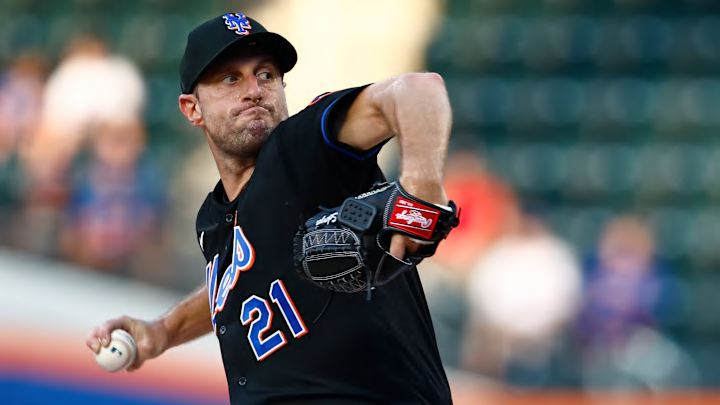In a series of unexpected events, the New York Mets traded Max Scherzer to the Texas Rangers for one top prospect. The team, which rumor been in discussion with the Rangers over Justin Verlander, turned the tide this past Saturday afternoon, surprising many.
Scherzer would go to the Texas Rangers, who make up one of the best offenses in MLB. While, the Mets receive Luisangel Acuña, prospect No. 44 of MLB, and $22.5 million of salary coverage, leaving the Mets with a commitment on Max Scherzer's contract of $35.5 million of the $58 million remaining.
The Mets got a huge return for a regressing Max Scherzer
In a move that shows the potential of Steve Cohen financial flexibility, the Mets maximized their return for Max Scherzer. Scherzer has a regressed year due to the ineffectiveness of his slider. The pitch has been hitting hard, where his allowed exit velocity has increased by more than seven mph.
Scherzer has nonetheless shown his dominance on the mound between starts, so the Rangers see him as the ace that can top their rotation in the Playoffs. Similarly, Scherzer could benefit from a ballpark like Global Life Field, where many home runs have been hit this year but have historically been a more beneficial ballpark for pitchers.
For the Mets, getting a prospect like Luisangel Acuña is the biggest return they could ask for given the performance shown by Scherzer. Acuña is an infielder projected to develop in MLB as a player with high contact, power, and speed.
Its raw power is above average that could be transferred to MLB and hit between 25 and 30 home runs. Like his older brother, has great base speed that can allow him to steal more than 50 consistently, something the Mets haven't had for years.
Acuña automatically projects as the No. 1 prospect in the organization and would put the Mets in the top 4 of the top 100 starting today. The infielder is a dynamic shortstop that scouts see going forward as a better option for second base.
The ripple effects of this trade are important as the Mets get a return that boosts their farm system, something Steve Cohen has been looking for since he joined the team to achieve long-term sustainability. Likewise, despite compromising some of next year's salary, the payroll has more room to operate next free agency, and they have one more rotation spot to fill where the Mets have their eye on Japanese star Yoshinobu Yamamoto.
